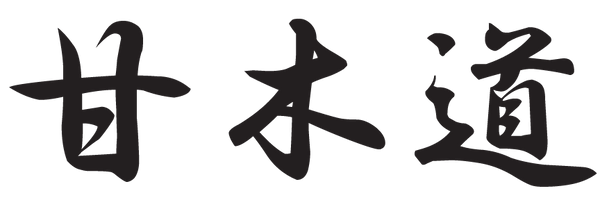Kochi fish arabesque design peach buttocks vase by Kosai Miyagawa
Kochi fish arabesque design peach buttocks vase by Kosai Miyagawa
Couldn't load pickup availability
Height: 27.5cm Width: 11.5cm
"Hanaire" is a highly acclaimed tea ceremony utensil. A vase is literally a vessel for arranging flowers, and is used to decorate a tea ceremony with flowers and hanging scrolls, bringing beauty and tranquility to the space. Kochi ware is characterized by its gorgeous glaze and unique design, and this piece in particular is a very sophisticated piece that combines arabesque patterns and fish motifs.
The Origin and Meaning of Arabesque Patterns <br>The "Arabesque pattern" on this vase is a design that has its roots in ancient Greece and Egypt. The arabesque pattern represents the strength of life as grasses and ivy intertwine, and was introduced to Japan via the Silk Road. In Japanese culture, the arabesque pattern has been highly valued as an "auspicious pattern" symbolizing prosperity and longevity. The arabesque pattern is expressed with symmetrical spirals and intertwining vines, and is used as aesthetic decoration in a variety of situations.
Characteristics and history of Kochi ware Kochi ware is a type of pottery characterized by its vivid glaze, and was introduced to Japan through trade with Cochinchina, Vietnam. Its name comes from the fact that it was brought there by Kochi ships, but the actual place of origin is said to be Zhangzhou in the southern part of Fujian Province, China. Kochi ware is characterized by its unique technique of firing at low heat, and many pieces that use a variety of colored glazes such as yellow, purple, blue, and green. It was particularly used as tea utensils, and was highly valued by connoisseurs of the Edo period.
Fish and peach buttock motif <br>The design of this vase combines fish and arabesque patterns. Fish are a symbol of water, and have been considered an auspicious motif representing prosperity and harmony since ancient times. The fusion of arabesque patterns and fish symbolizes the vitality and abundance of nature, and this meaning is also enhanced in the tea ceremony.
"Momojiri" (peach-shaped buttocks) is a word that describes the shape of this vase, with a rounded silhouette like a peach. Peaches have been a symbol of longevity and immortality in China and Japan since ancient times, and the shape of this vase is considered auspicious, bringing happiness and health.
Miyagawa Kosai and the tradition of Makkuzu ware <br>He is a ceramist from the Miyagawa family, a prestigious Kyoto ware family known as Makkuzu ware. The Miyagawa family is a family of potters that has continued since the Edo period, and has produced many beautiful tea utensils, especially using Makkuzu ware and Kouchi ware. Miyagawa Kosai's works are highly regarded in the world of tea ceremony, and his techniques and designs are prized by museums and collectors both in Japan and abroad. The Miyagawa family, especially since the fourth generation, have continued to produce works that incorporate modern sensibilities while maintaining traditional techniques.
Importance as a Tea Ceremony Tool <br>This "Koshigyo Arabesque Design Peach-bottom Vase" also plays a very important role as a tea ceremony tool. At a tea ceremony, arranging flowers according to the season and the occasion brings the beauty of nature into the tea room and has a calming effect. The vivid colors and graceful shape of this vase bring a balance of splendor and tranquility to the tea room, and will leave a deep impression on those who visit the tea ceremony. "Koshigyo Arabesque Design Peach-bottom Vase Miyagawa Kosai" is a masterpiece that beautifully combines traditional techniques and design. This vase, which has been highly valued in the world of tea ceremony, embodies the Japanese aesthetic sense that has been passed down throughout history, with the arabesque pattern that has been continued since ancient times and the auspicious meaning symbolized by the shape of the fish and peach. This work by Miyagawa Kosai continues to add color to tea ceremonies and captivate the hearts of those who see it.
Share
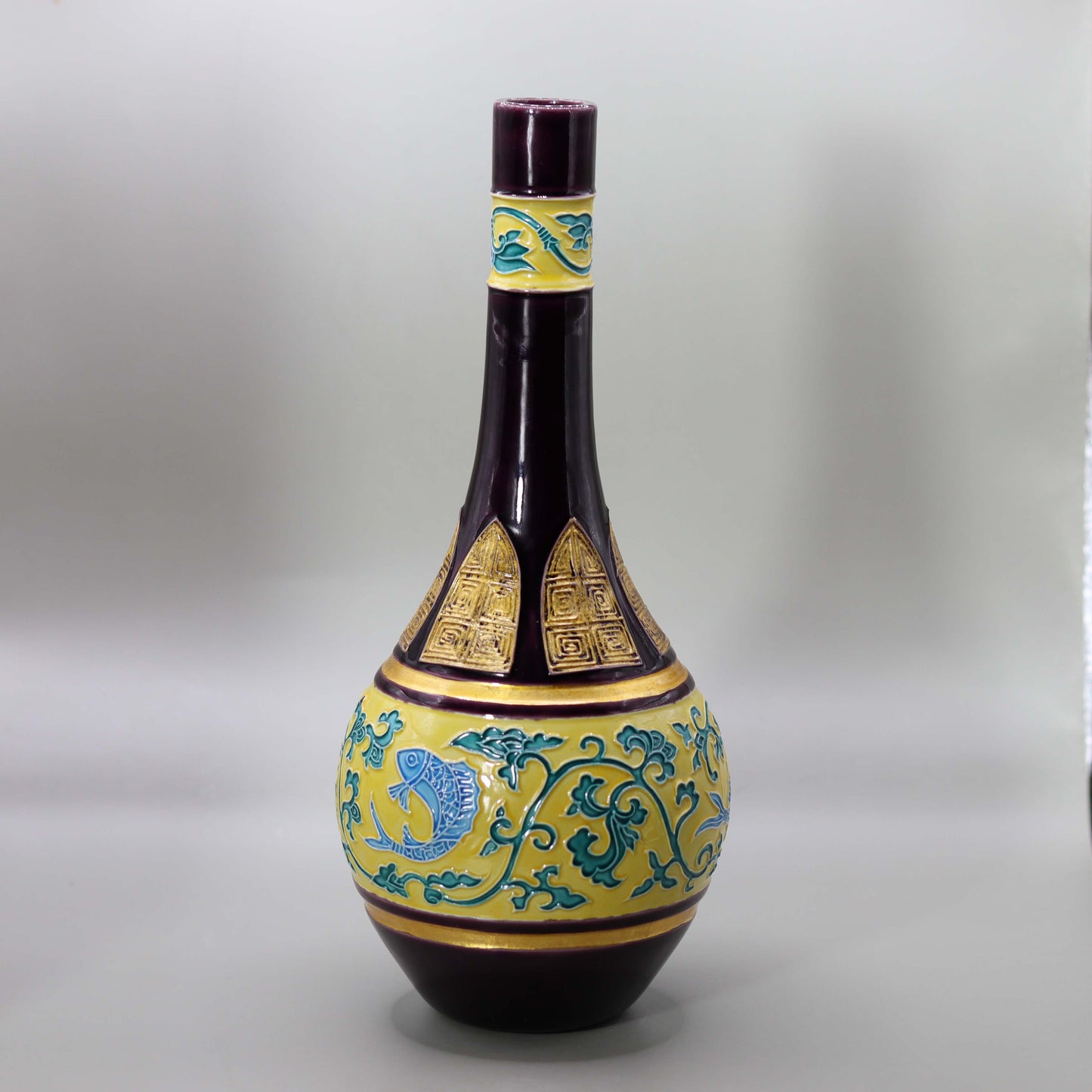
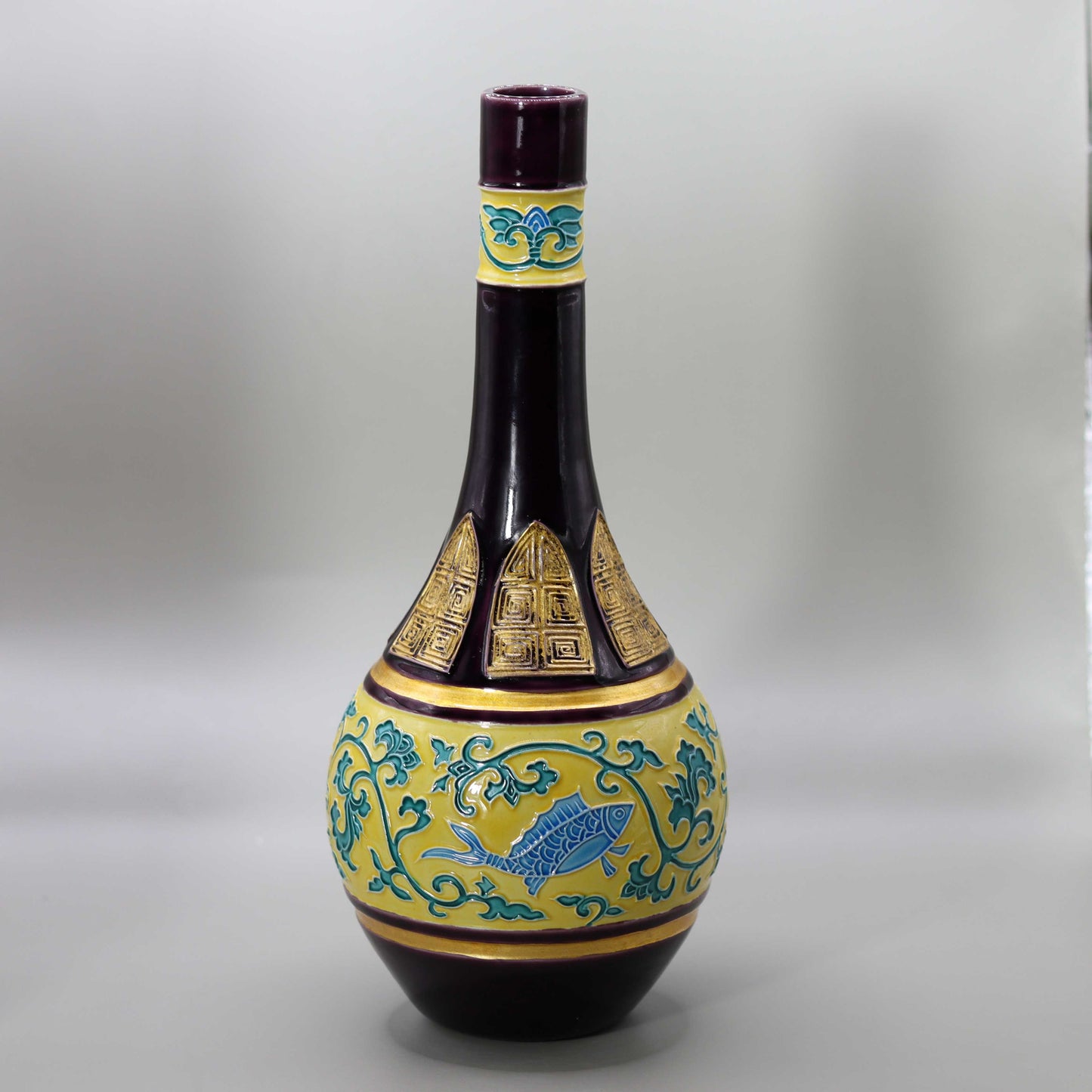
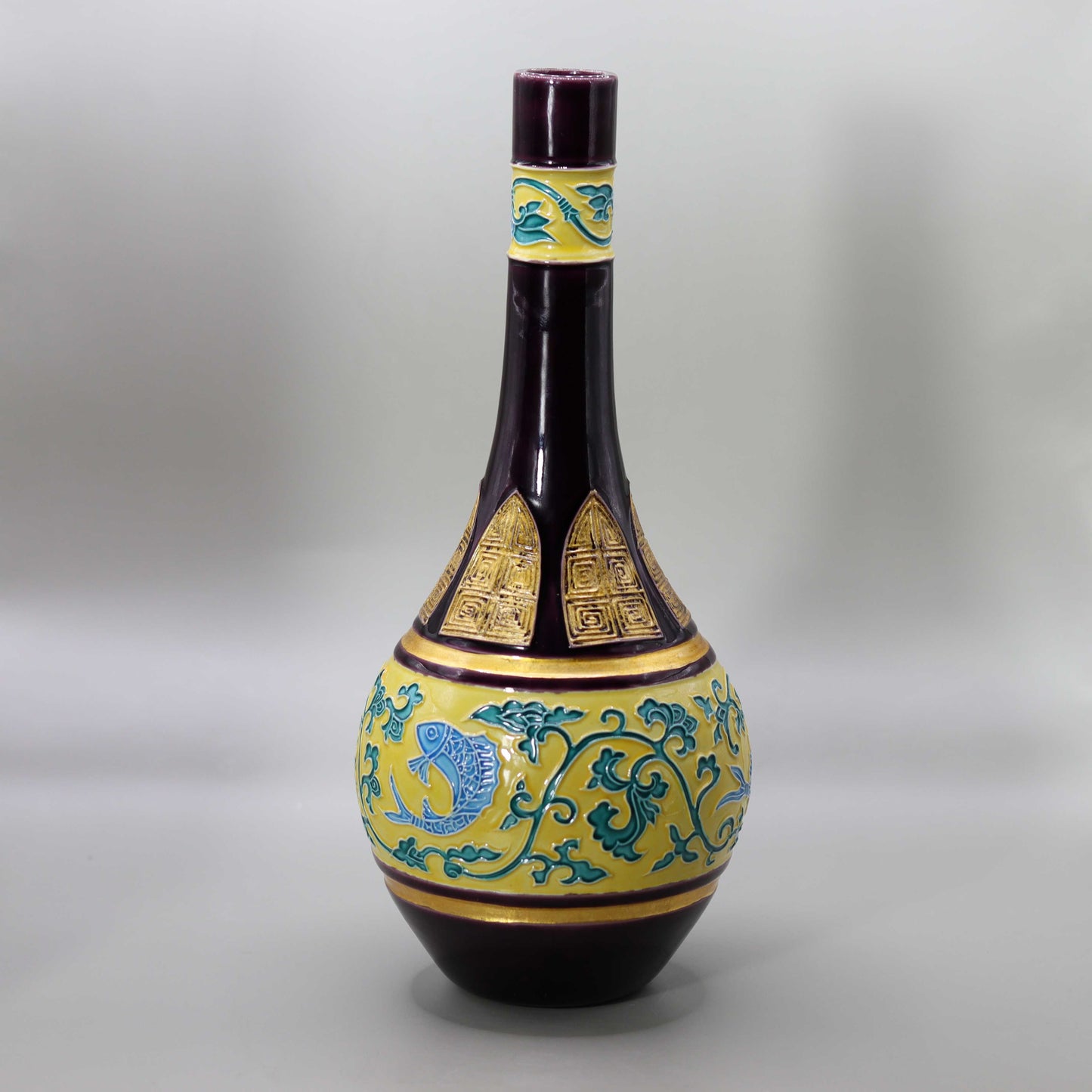
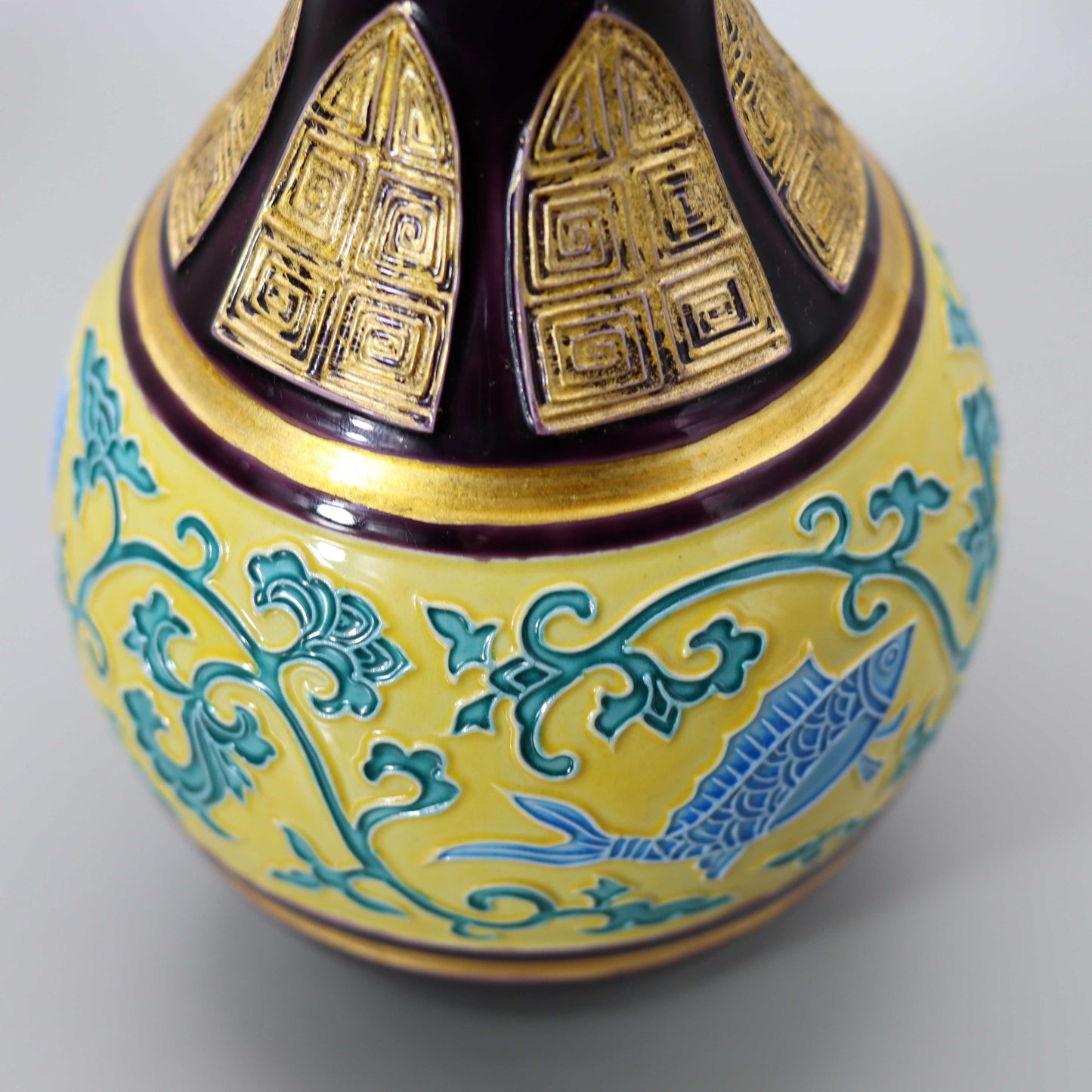
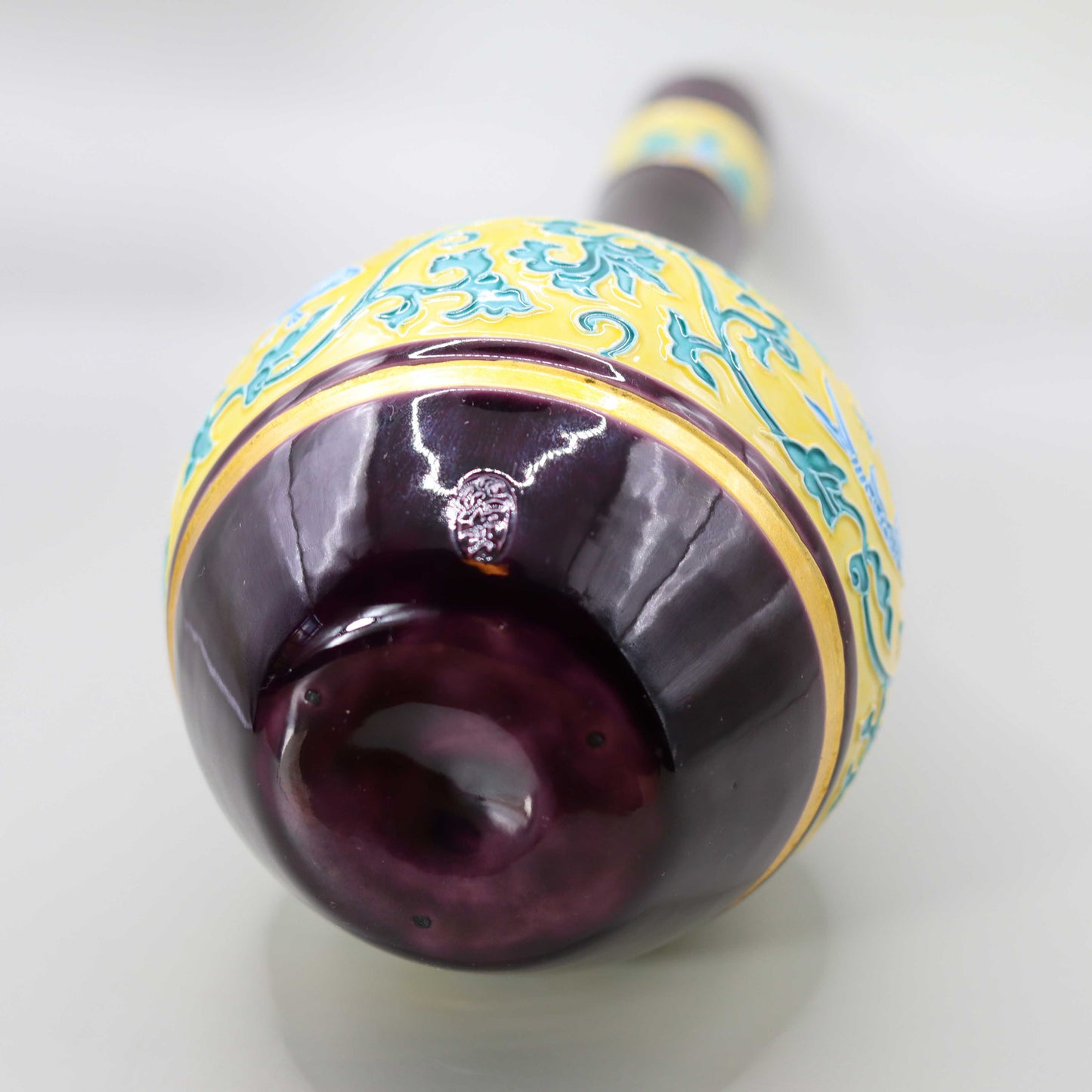
Multi-Column
-
[I will send it to you quickly and carefully]
We carefully package each product in a way that suits it best.
Also, delivery times vary depending on the piece (vessel, etc.).
Items that already come with a box will be shipped within 1-3 days of the order date.
For items that require a box to be made after your order, it will take approximately 30 days for production to be completed and then shipped.
In either case, once we have confirmed your order, we will contact you by email to inform you of the delivery date.
-
[Requests when purchasing pottery]
Even products that look the same may differ slightly in color, shape, size, etc.
The way the glaze is used, the power of the kiln, the firing method, the season, and the humidity also affect the appearance of the pottery.
Please understand the individuality of each piece of pottery and enjoy the unique warmth of handmade.
